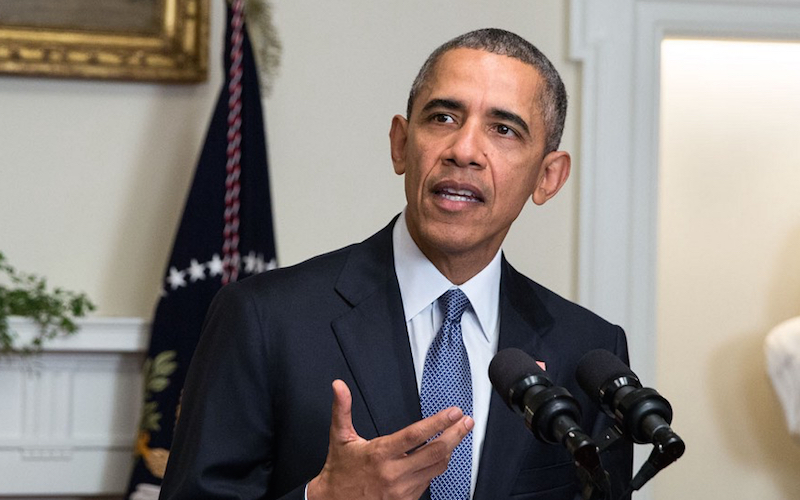
Obama’s Disingenuousness on Iran: A Postscript
I have regularly thrown doubt on the sincerity of President Obama’s past vows about being prepared to resort to military force in order to prevent Iran’s nuclear ambitions. So it’s worth noting a New York Times article the other week surveying the various factors that could have pushed Tehran toward the just-implemented nuclear agreement with the United States.
The newspaper credits the inducements held out by Secretary of State John Kerry’s diplomatic engagement, as well as the coercive effects of economic sanctions and covert programs aimed at sabotaging Iran’s nuclear weapons effort. Another factor, according to the Times, was the threat of preventative military action – by Israel not by the United States.
The Israeli factor was tangible enough. Ehud Barak, who served as defense minister in Prime Minister’s Benjamin Netanyahu’s government from 2009-2013, revealed last year that Israel came close on several occasions to launching unilateral military strikes against Iran’s nuclear facilities.
According to an October 2014 report in The Atlantic, U.S. officials were convinced in 2010 and again in 2012, that “Netanyahu and his then-defense minister, the cow boyish ex-commando, Ehud Barak, were readying a strike on Iran…the fear inside the White House of a preemptive attack (or preventative attack, to put it more accurately) was real and palpable.”
Referring to these occasions, the New York Times piece quotes Michael Morell, who recently retired as deputy director of the Central Intelligence Agency, as saying “Before the negotiations for the nuclear deal began [in 2013] we were closer to war with the Islamic Republic than at any time since 1979.” The newspaper also notes: “Mr. Obama had little doubt that if Israel started a conflict, the United States would be unable to stay out. That was the conclusion of a series of classified war-gaming exercises conducted at the National War College, at the Pentagon and inside American intelligence agencies.”
It is difficult to discern what effect the fear of Israeli action had on Tehran’s calculus. But its impact on Washington is already known. In the wake of the Edward Snowden revelations two years ago, President Obama announced that the U.S. would no longer intercept the communications of allied leaders. But a secret exception was made for Mr. Netanyahu, since the White House was convinced he would attack Iran without first bothering to consult with Washington.
Satellite surveillance of Israeli military bases was also stepped up after the U.S. concluded that Israeli aircraft had probed Iranian air defenses in preparation for a commando raid on Iran’s most heavily guarded nuclear facility. And the U.S. Central Command, which oversees U.S. military forces in the Middle East, began monitoring weather patterns and the phases of the moon over Iran, trying to predict the exact night of the coming Israeli attack.
All of this evidence further reinforces my earlier conclusion that Obama’s threat to pick up the cudgel of military action was a rhetorical device aimed more at restraining the Israeli government than pressuring the Iranian one.
